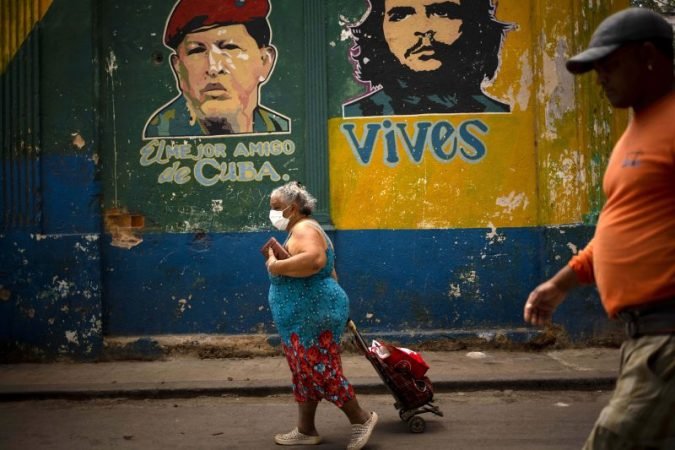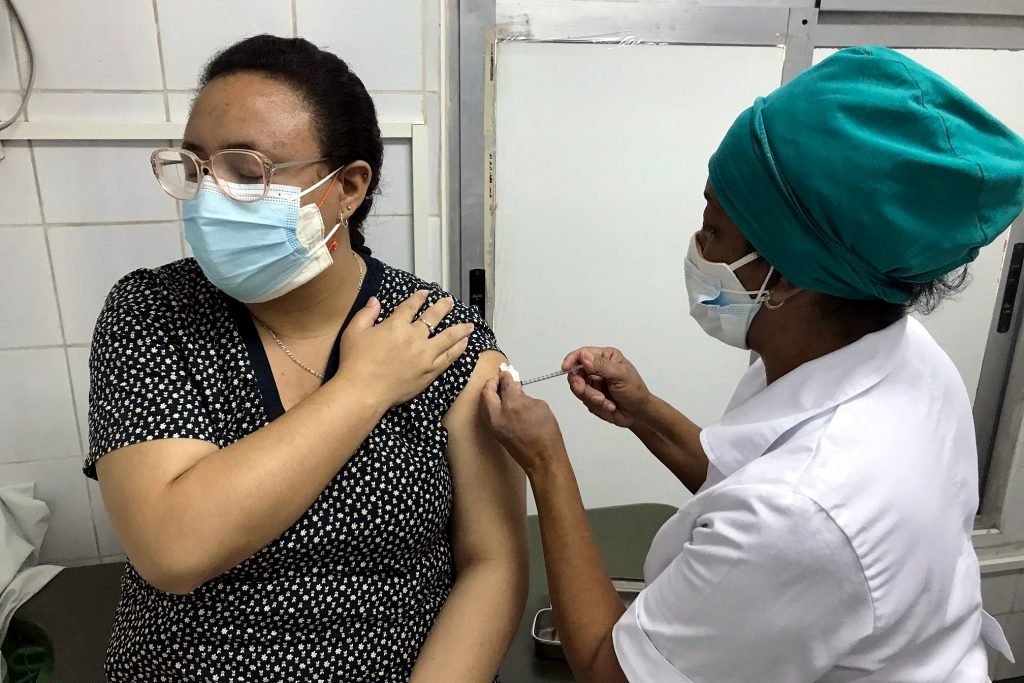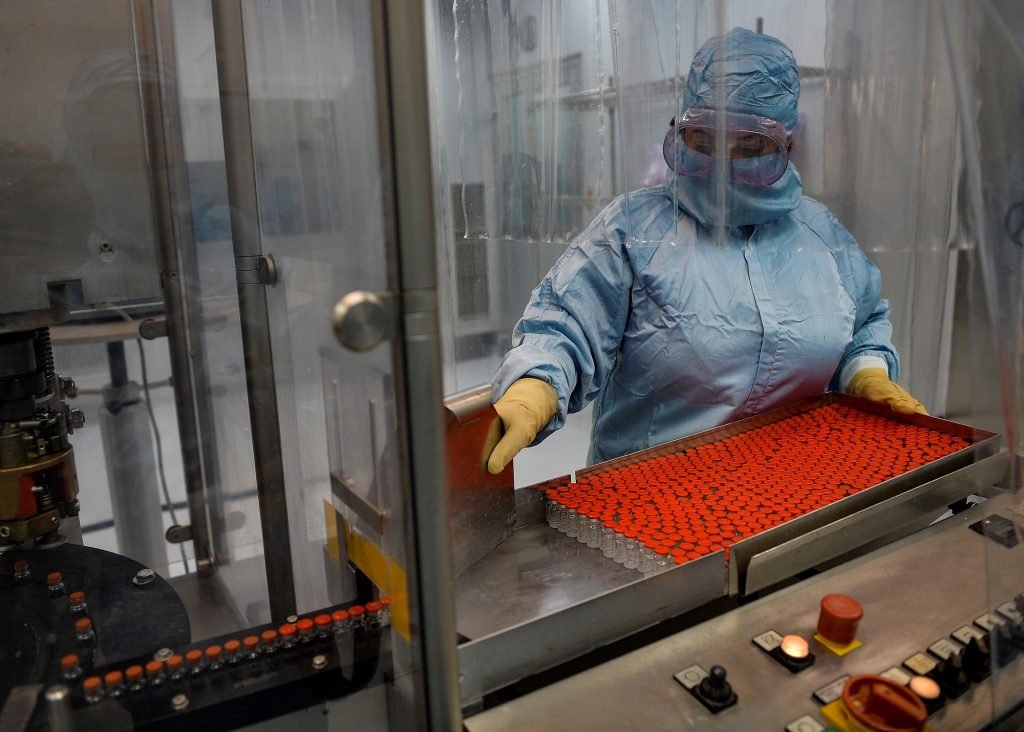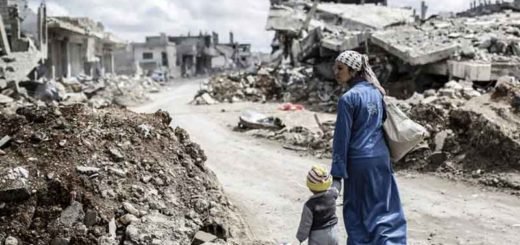Cuba’s Vaccine Programme- A spark of hope

With 135,000 cases, 901 deaths but over 128,000 recoveries the small island hamlet of Cuba nestled in the Caribbean shines out as an exemplary role model for small states to manage the crisis brought out by the virus that originated in the PRC. Although there were speculations that the island nation would collapse within days of the spread of the infection among its populace, it has managed tremendously to not only bring the rage of the infection under control but has also pioneered in medical research and especially in creating its own home-grown vaccines. Unlike many small states that struggle with basic infrastructure related to health, Cuba boasts of a free universal healthcare, low infant mortality, highest ratio of doctors to the population and also high life expectancy. Cuba has devoted a lot to science and technology especially in medical care and it is well known that Cuban doctors often volunteer to aid other states through their Henry Reeve Brigade. Additionally its effective disaster management system and close coordination between local and national units have ensured that it is apt enough to deal with disasters. The Wuhan virus has however unleashed its gory on the small island, paralysing it but determined the administration along with its scientists have embarked on a mission to develop and produce its own home grown vaccines. Could it be the spark of hope, especially for not only the Cubans but for the rest of the world which is still in the shadow of inability to procure vaccines?
Cuba’s Medical prowess
Being an island state and at constant loggerheads with the United States that has a history of imposing sanctions on the hamlet, the Cuban administration is generally well prepared for handling disasters. However, the pandemic and its effects were unthinkable. In the first instance of noticing three cases the administration swung immediately isolating and contact tracing. In comparison to the Dominican Republic which has a similar population, Cuba proved to be far more apt in dealing with the crisis due to its quick response. The response of the Cuban administration was to ensure that the further spread of cases was stopped dead in its tracks, they banned the entry of tourists and engaged in a full lockdown mode in order to achieve this. Furthermore, as people were urged to stay indoors the administration issued a series of directives to ensure supply of medicine and food for the population. Interestingly while it is easy to castigate Cuba, one must remember that not only does it boast of a life expectancy as compared to other developed states, it also has the highest doctor to population ratio in the world (84 per 10,000).

Additionally the Cuban medical system is based on individual communities with every neighbourhood having its own clinics, doctors and other allied medical staff to cater to the demands of the locality. This ingenious system also known as CARE (Continuous Assessment and Risk Evaluation) was engaged in tracing cases and isolating affected people. Since 1970s as a response to American blockade of medical equipment and technical knowhow the indigenous Cuban medical system has six interlocking layers of medical care right from the family physician, sector polyclinics, community health centres, municipal hospitals, provincial hospitals and national health institutes.
Cuba’s Biomedical Research
As a response to the American sponsored embargo on medicines and medical research the Cuban administration decided to devote its resources to engage in medical research and upgradation of its health infrastructure. Christened as the BioCubaFarma (which is a series of state run research organisations). Cuba thus sought out to become self-sufficient in terms of medicines and vaccines and with the pandemic raging on Cuba’s medical acumen will enable the world to reap benefits. Its efficient handling of the pandemic despite facing shortage of raw materials is an example how the small island depended more on proper policies rather than on resources. With around 2,438 patents and another 2,640 pending the biomedical research industry thrives on state sponsored research and international collaboration. Eight institutes comprise the massive conglomerate which are the Centre of Genetic Engineering and Biotechnology, Centre of Molecular Immunology, The Finlay Institute, Centre of Immunoassay, The Neurosciences Centre, The National Centre of Scientific Research, The Central Institute for Digital Research, and FarmaCuba. As a result of such streamlined research, around 60 percent of Cuba’s medical requirement is domestically provided, in addition to which it also exports such medicines to other states. In this context it will be useful to discuss Cuba’s home grown Covid vaccines which may be a boon for the world.
Cuba’s Covid Vaccines
As explained before, Cuba responded to embargo and sanctions with its impressive biomedical research and health infrastructure. The Pandemic turned out to be another reason for Cuba’s research in vaccines with a view to not only break through the vaccine hegemony of richer nations and the PRC, but to reduce dependence on these same institutes for vaccinating its own population. The Cuban administration also seeks to aid other states in availing cheap and affordable vaccines without strings attacked. Cuba was slated to develop five home grown vaccines which were named as Soberana, Abdala and Mambisa. Out of which the Soberana 2 and the Abdala are in their final phase trials. As conventional conjugate vaccines, the functionality of these vaccines depend on the infusion of the spike protein with carrier molecules.
While western nations have been apparently oblivious to Cuba’s medical research, nations such as Venezuela, Mexico and Iran have expressed interest in these vaccines. Dr Vincente Vérez, the director of the Finlay Institute claimed that the purpose of creating home grown vaccines was to reduce dependency and to aid those states that are looking for cheaper vaccines. In this regard the Cuban viewpoint is important to note especially in the face of the fact that Cuba refused to join the Covax Alliance of the United Nations. While Cuba has no other option but to grudgingly go along with the American sanctions, it may develop its home grown vaccines for a wider approval and use, which may enable it to break through the medical hegemony of the western powers and it may also be able to cement its position in the world. It also has to be borne in mind that in the race for vaccines, distribution and immunisation, those states that can afford have a head start. While poorer nations are densely populated due to paucity of funds and leverage it has become increasingly difficult for them to obtain the same. Hence, while medical behemoths such as Pfizer have been accused of bullying Latin American states during the vaccine negotiations, Cuba’s medical diplomacy, internationalism and its power projection may very well be concluded by its successful vaccine trials. Not only will it enable an alternative means to vaccinate people undercutting the hegemony of big pharmaceuticals but it actually may aid in faster immunisation all across the globe.

Indeed as the world painfully inches towards immunisation, the glaring disparity and the mad rush to book vaccines from renowned pharmaceutical companies and not to mention the dependency on them has exposed an ever widening gap between the developed and the developing world. Critically speaking while it is quite unethical to subdue sovereign states with vaccine bullying such as done by Pfizer and the PRC, the urgency of vaccinating the global population betrays the underlying interests related to extension of a state’s power or profiteering. While pharmaceutical behemoths will undoubtedly harp on patenting and licencing rights, home grown vaccines such as from Cuba will go in a long way to ensure that a much required balance is maintained.


















